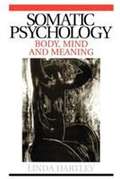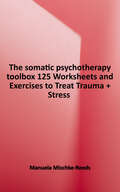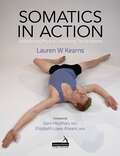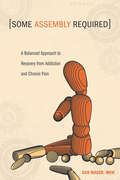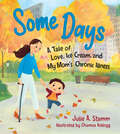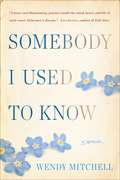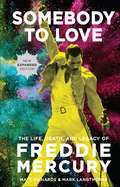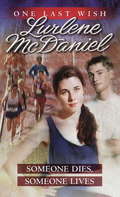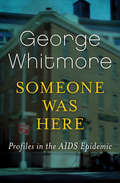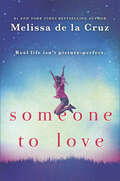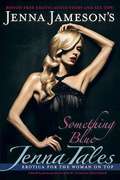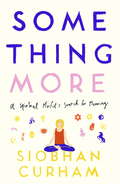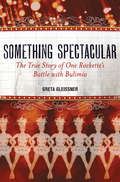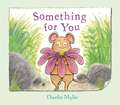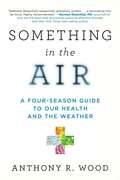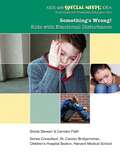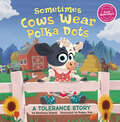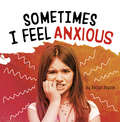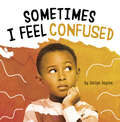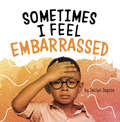- Table View
- List View
Somatic Psychology: Body, Mind and Meaning
by Linda HartleyThis book brings attention to the interface of psychotherapy and psychological theory with the somatic practices of bodywork and movement therapy. To offer a client only psychotherapy, or only bodywork may subtly or directly reinforce the body-mind split from which so many of us suffer; in some cases this will be a reinforcement of a dilemma central to the client's problems. Hartley views body psychotherapy and transpersonal psychotherapy as building bridges between the once separated processes of psyche, soma, and spirit. Today the emerging field of somatic psychology is also contributing to the expanded field of psychology a subtle differentiation of bodymind process, developed through almost a century and a half of research and practice in somatic therapy and education. Originally trained as a dancer, movement therapist and bodywork practitioner, Hartley continues to use movement and somatic process as an important foundation for her own work. Training in Dance Movement Therapy, the transpersonal psychotherapy of Psychosynthesis, and Process-Oriented Psychology have further deepened Hartley's awareness of the relationships between psyche, soma and spirit, and the need to respond to all levels of experience in therapeutic work.
Somatic Psychotherapy Toolbox: 125 Worksheets and Exercises to Treat Trauma and Stress
by Manuela Mischke-ReedsFrom over 25 years of clinical experience, the author has created the go-to resource for mental health therapists who want to incorporate somatic techniques into their daily practice. Highly effective for clients dealing with trauma and stress disorders, somatic psychotherapy is the future of healing the entire person's body and mind. Section-by-section, this toolbox guides the clinician through: - Targeted somatic interventions for trauma, stress and PTSD - Steps to incorporate the body into your current therapeutic approach - Mindfulness techniques and breath work - Starting guidelines, safety concerns and keys to success- Getting to know their own body to better use body work with clients.
Somatics in Action: A Mindful and Physical Conditioning Tool for Movers
by Lauren KearnsSomatics in Action describes a Pilates, yoga, and dance inspired movement system that helps movers achieve optimum strength, skeletal alignment, and body-mind engagement. The book integrates the Pilates principle of strengthening abdominal and spinal musculature to support postural stability and balance with alignment-based yoga's principle of proper physical placement and an understanding of anatomical structure. Three additional concepts that contribute to the foundation of SIA are imagery, experiential anatomy, and body integration. This work focuses on dancers consistently engaging with their body and mind's inner wisdom, not only in quiet moments of reflection, but also in the very active moments of moving, dancing and creating. Somatics in Action details the unique movement theory and practice developed by the author. The book blends yoga, Pilates, experiential anatomy, body integration and imagery into a comprehensive, rigorous and creative pedagogical tool for educators and dancers. The textbook outlines how dance, movement, yoga and Pilates educators can incorporate this technique into their teaching and curriculum. The book: * provides thoughtful and nuanced explanation of the technique as well as detailed lesson plans and assignments that can be implemented immediately into a university or other curriculum. * can be used in any somatic based class (yoga, Pilates, dance conditioning), in modern dance technique courses and also in creative movement curricula
Some Assembly Required
by Dan MagerAn intriguing story that addresses the twin challenges of addiction and chronic pain and presents a model for successful recovery from both of these serious, life-altering conditions. The author grounds his story in psychological theory along with the principles of twelve-step philosophy and spirituality as he moves from intellectualized awareness to a deep emotional and mindful practices connection in recovery.Dan Mager, MSW, is a writer and editor in long-term recovery.
Some Days: A Tale Of Love, Ice Cream, And My Mom's Chronic Illness
by Julie A. StammNothing can stop Wyatt and Rosie in this heartwarming tale about having a parent with a chronic illness Even when Wyatt’s mom isn’t feeling her best, he still thinks she’s a superhero! Rosie and Wyatt go on adventures every day: On sleepy days, they build a cozy pillow fort just for two. On wobbly days, Wyatt gets out Rosie’s magical walking stick and they cast spells on his toys. And on one super-special day, the whole family heads to town for the big “funraiser”! Warm and uplifting, Some Days is the perfect story to share with your child about life with multiple sclerosis—or any chronic illness. Although some days are fast and some are slow, Rosie and Wyatt fill each one with love, excitement, and fun . . . not to mention ice cream!
Somebody I Used to Know: A Memoir
by Wendy Mitchell“A brave and illuminating journey inside the mind, heart, and life of a person with early-onset Alzheimer’s disease.”—Lisa Genova, author of Still Alice Wendy Mitchell had a busy job with the British National Health Service, raised her two daughters alone, and spent her weekends running and climbing mountains. Then, slowly, a mist settled deep inside the mind she once knew so well, blurring the world around her. She didn’t know it then, but dementia was starting to take hold. In 2014, at age fifty-eight, she was diagnosed with young-onset Alzheimer’s. In this groundbreaking book, Mitchell shares the heartrending story of her cognitive decline and how she has fought to stave it off. What lay ahead of her after the diagnosis was scary and unknowable, but Mitchell was determined and resourceful, and she vowed to outwit the disease for as long as she could. As Mitchell learned to embrace her new life, she began to see her condition as a gift, a chance to experience the world with fresh eyes and to find her own way to make a difference. Even now, her sunny outlook persists: She devotes her time to educating doctors, caregivers, and other people living with dementia, helping to reduce the stigma surrounding this insidious disease. Still living independently, Mitchell now uses Post-it notes and technology to remind her of her routines and has created a “memory room” where she displays photos—with labels—of her daughters, friends, and special places. It is a room where she feels calm and happy, especially on days when the mist descends. A chronicle of one woman’s struggle to make sense of her shifting world and her mortality, Somebody I Used to Know offers a powerful rumination on memory, perception, and the simple pleasure of living in the moment. Philosophical, poetic, intensely personal, and ultimately hopeful, this moving memoir is both a tribute to the woman Wendy Mitchell used to be and a brave affirmation of the woman she has become.Advance praise for Somebody I Used to Know “Somebody I Used to Know is both an indispensable guide for people grappling with the consequences of a dementia diagnosis and a stirring account of courage in the face of devastating loss.”—Booklist (starred review) “This is an eloquent and poignant book. Those of us who have gone on the heartbreaking journey of losing a loved one to dementia have wondered what they were feeling. Wendy Mitchell’s courageous and unflinching account lets us know.”—Patti Davis, author of The Long Goodbye
Somebody to Love: The Life, Death and Legacy of Freddie Mercury
by Matt Richards Mark LangthorneA biography examining the final days of Freddie Mercury in the dawn of AIDS and the legacy he left behind. For the first time, the final years of one of the world&’s most captivating rock showman are laid bare. Including interviews from Freddie Mercury&’s closest friends in the last years of his life, along with personal photographs, Somebody to Love is an authoritative biography of the great man. Here are previously unknown and startling facts about the singer and his life, moving detail on his lifelong search for love and personal fulfilment, and of course his tragic contraction of a then killer disease in the mid-1980s. Woven throughout Freddie&’s life is the shocking story of how the HIV virus came to hold the world in its grip, was cruelly labelled &“The Gay Plague&” and the unwitting few who indirectly infected thousands of men, women and children—Freddie Mercury himself being one of the most famous. The death of this vibrant and spectacularly talented rock star, shook the world of medicine as well as the world of music. Somebody to Love finally puts the record straight and pays detailed tribute to the man himself. &“Touts rare—and in some cases, never before seen—images of Mercury and new insight into his life.&”—People &“The book could be a standalone epidemiological study about the history of HIV/AIDS even without Mercury. But eventually, it weaves him into the timeline, giving a detailed account of his personal life, and his battle with the disease that tragically took him at age 45 in 1991. The result is a powerfully emotional read.&”—Rolling Stone
Someone Came Before You
by Pat SchwiebertA book to help children understand the loss of a child before them. In simple terms, a child is taken through the joy and loss and joy again as a couple plan for a baby, lose it, and eventually go on to have another child.
Someone Dies, Someone Lives (One Last Wish #11)
by Lurlene McdanielYou don't know me, nut I know about you. . . . I can't make you live longer, I can't stop you from hurting. But I can give you one wish, as someone did for me.<P> Katie O'Roark feels miserable, even though she knows she's incredibly lucky to have received an anonymous gift. Still, the money can't buy her a new heart or bring her back to her track-star days. When a donor is found with a compatible heart, Katie undergoes transplant surgery. While recuperating, she meets Josh Martel and senses an immediate connection. When Katie decides to start training to attain her dream of running again, Josh helps her meet the difficult challenge.Will Katie find the strength physically and emotionally to live to become a winner again?
Someone Was Here: Profiles in the AIDS Epidemic
by George WhitmoreThree powerful profiles of men and women whose lives were changed forever by the AIDS epidemic&“Some of my reasons for wanting to write about AIDS were altruistic, others selfish. AIDS was decimating the community around me; there was a need to bear witness. AIDS had turned me and others like me into walking time bombs; there was a need to strike back, not just wait to die. What I didn't fully appreciate then, however, was the extent to which I was trying to bargain with AIDS: If I wrote about it, maybe I wouldn't get it. My article ran in May 1985. But AIDS didn't keep its part of the bargain.&” —George Whitmore, The New York Times MagazinePublished at the height of the AIDS epidemic, Someone Was Here brings together three stories, reported between 1985 and 1987, about the human cost of the disease.Whitmore writes of Jim Sharp, a man in New York infected with AIDS, and Edward Dunn, one of the many people in Jim&’s support network, who volunteers with the Gay Men&’s Health Crisis organization in the city. Whitmore also profiles a mother, Nellie, who drives to San Francisco to bring her troubled son, Mike, home to Colorado where he will succumb to AIDS. Finally, Whitmore tells of the doctors and nurses working on the AIDS team in a South Bronx hospital, struggling to treat patients afflicted with an illness they don&’t yet fully understand.Expanded from reporting that originally appeared in the New York Times Magazine, Someone Was Here is a tragic and deeply felt look at a generation traumatized by AIDS, published just one year before George Whitmore&’s own death from the disease.
Someone to Love
by Melissa de la CruzFrom the #1 New York Times bestselling author of Alex & Eliza, The Witches of East End, and the Descendants series comes a powerful and moving novel about learning to love yourself.Olivia “Liv” Blakely knows how important it is to look good. Her father is running for governor and Liv is thrust into the bright media spotlight. She has an image to uphold—to her maybe boyfriend, to her new friends and to the public, who love to find fault on social media.Liv’s sunny, charming facade hides an inner voice that will settle for nothing less than perfection. No matter who she has to give up, or what she has to lose, to achieve it. But as the high price of perfection takes a toll, Liv realizes that the love she feels for herself is more important than all the ‘likes’ in the world.In her most powerfully moving novel to date, #1 New York Times bestselling author Melissa de la Cruz explores anxiety, fear of judgement, and the most important thing of all: learning to love yourself.
Something Blue
by Jenna Jameson M. Catherine OliversmithWorld famous entrepreneur, sexy celebrity icon, and New York Times best-selling author Jenna Jameson presents JennaTales, Erotica for the Woman on Top. These titillating tales are written by today's hottest authors to tempt and tease you. Each refreshingly creative story portrays powerful women who know what they want and how they can get it. Who better to represent these wildly sexy short erotic tales than the woman whose name is synonymous with sexy: Jenna Jameson. Includes a free erotic audio story and sex tips!
Something More: A Spiritual Misfit's Search for Meaning
by Siobhan CurhamHave you ever wondered if there might be something more to life?When Siobhan Curham decided to write a book about happiness there was only one small problem, which became a massive problem as soon as she sat down to write - she wasn't truly happy.Not wanting to be a fraud, Siobhan set out to discover the secret to true and lasting happiness. Her quest took her on an unexpected path deep into the heart of the world's spiritual traditions.Something More is a funny and moving account of Siobhan's journey, as she found religion - and promptly lost it again - then went on to develop her own spiritual 'pick and mix' of practises from Buddhist chanting, Irish yoga, Jewish philosophy and Reiki healing, to connecting with her inner goddess and finding her shamanic spirit animal (who, it turns out, was a large, black, talking horse).Full of brutally honest anecdotes and age-old wisdom, Something More is for anyone who has ever thought about exploring their spiritual side, and those who might feel disillusioned by organised religion but still crave that elusive 'something more'. After all, who wouldn't want to find inner peace and everlasting happiness?
Something More: A Spiritual Misfit's Search for Meaning
by Siobhan CurhamHave you ever wondered if there might be something more to life?When Siobhan Curham decided to write a book about happiness there was only one small problem, which became a massive problem as soon as she sat down to write - she wasn't truly happy.Not wanting to be a fraud, Siobhan set out to discover the secret to true and lasting happiness. Her quest took her on an unexpected path deep into the heart of the world's spiritual traditions.Something More is a funny and moving account of Siobhan's journey, as she found religion - and promptly lost it again - then went on to develop her own spiritual 'pick and mix' of practises from Buddhist chanting, Irish yoga, Jewish philosophy and Reiki healing, to connecting with her inner goddess and finding her shamanic spirit animal (who, it turns out, was a large, black, talking horse).Full of brutally honest anecdotes and age-old wisdom, Something More is for anyone who has ever thought about exploring their spiritual side, and those who might feel disillusioned by organised religion but still crave that elusive 'something more'. After all, who wouldn't want to find inner peace and everlasting happiness?
Something Spectacular: The True Story of One Rockette's Battle with Bulimia
by Greta GleissnerGreta Gleissner, a longtime professional dancer, dreamed her whole life of becoming a Rockette. Then she became one-and she fell into the grips of a powerful eating disorder that began poison her life from the inside out. Something Spectacularis Gleissner’s raw, personal chronicle of the devastating effects bulimia exacts upon her life during her time as a Rockette. As her disorder takes over, she begins to lead a dual life: happy-go-lucky on the outside; tortured by obsessive, self-destructive voices on the inside. Immersed in an environment in which even talent is secondary to appearance, Gleissner hides her disorder by any means necessary-lying, cheating, and stealing with no regard for the consequences of her actions-until she hits rock bottom and is forced to face the truths behind her disease. Her intensive odyssey of self-discovery ultimately gives her the strength to reshape her self-image, embrace her sexuality, and break free of the malignant hold bulimia has on her life. The first book to give voice to the pervasive but often unaddressed problem of eating disorders in the dance industry,Something Spectacularis a gripping exposé of the insidious nature of eating-related diseases-and a profound account of one woman’s journey toward self-acceptance and recovery.
Something Sweet: 100+ Gluten-Free Recipes for Delicious Desserts
by Lindsay GrimesAn expert blogger in the world of baking shares 100+ recipes from her signature repertoire for gluten-free desserts.Spanning cookies, cakes, cupcakes, brownies, bars, pies, crisps, and no-bake treats including fudge and ice cream, this tantalizing collection will inspire home bakers of all ages everywhere. Lindsay Grimes—creator of the blog The Toasted Pine Nut, author of Cauliflower Power, and founder of a line of baking mixes, Good & Gooey—shares 100 of her fabulous recipes for desserts that just happen to be gluten free. With interest in gluten-free food and home baking at an all-time high, Lindsay&’s personal expertise and collection of goodies—which include cakes, cookies, fun projects for kids, and non-bake treats—bring a fresh perspective to this popular subject. Her signature recipes—like brownie brittle ice cream sandwiches, birthday crunch crumble, sweet oat fig galette, cherry pie shortbread bars—are accessible and tantalizing, sure to become new everyday favorites. 100+ RECIPES: Gluten-free recipes that will appeal to bakers of all levels looking for health-conscious inspiration LEARN FROM AN EXPERT: Expert advice and tips from the creator of The Toasted Pine Nut blog DELICIOUS, EASY & UNIQUE: Recipes are accessible and feature innovative flavors, modern ingredients, and striking presentations
Something for You: A Picture Book
by Charlie MylieSomething for You is a touching picture book about lending a hand and the gift of friendship, from debut author-illustrator Charlie Mylie, whom Brian Selznick has heralded as “a major new talent in children's books.”A mouse’s friend is sick. What can he do to help her? He’ll go get her something! But what? Something little? Something to share? Or something just for her? When his search doesn’t go as planned, our mouse realizes that the best gift to give is something he’s had all along. With expressive characters, sweeping landscapes, and spare text, Charlie Mylie’s debut is a charming story of the comforts that friendship can bring.
Something in the Air: A Four-Season Guide to Our Health and the Weather
by Anthony R. WoodFeel the change in your bones? From worsening arthritis pain to seasonal depression, discover why millions of people really are "under the weather" and learn science-backed solutions to take control of your health no matter what the forecast. Your body is a living weather station, responding to every shift in temperature, pressure, and humidity. Drawing from groundbreaking research and decades of scientific investigation, veteran science journalist Anthony R. Wood reveals how seasonal changes impact everything from your joints and sinuses to your mood and immune system. Through vivid storytelling and interviews with leading researchers, Wood separates fact from folklore to explain: Why arthritis pain spikes before storms and what you can do about it How seasonal changes trigger asthma, allergies, and other respiratory conditions The real science behind Seasonal Affective Disorder (SAD) and vitamin D deficiency Evidence-based strategies to protect your health through all four seasons Written by a four-time Pulitzer-nominated science journalist, Something in the Air transforms complex biometeorological science into practical wisdom for anyone who has ever felt their health fluctuate with the weather. Includes an essential appendix of CDC-backed recommendations for managing seasonal health conditions.
Something's Wrong!: Kids with Emotional Disturbance (Kids with Special Needs: IDEA (Individua)
by Sheila StewartEmotions can be tricky things. Sometimes, a person has lots of negative emotions, and he doesn't know what to do with them. Kids with emotional disturbance often don't know how to deal with the overwhelming emotions they experience, and sometimes they react in inappropriate ways, disrupting their own lives and the lives of people around them. This can be scary for both the person dealing with emotional disturbance and for the other people. For all the people in the situation, understanding what is going on is important.
Sometimes Cows Wear Polka Dots: A Tolerance Story (My Spectacular Self)
by Shoshana StopekMillie isn’t like the other cows. The other cows make milk. Millie makes milkshakes. The other cows meander. Millie sashays. The other cows wear spots. Millie wears polka dots. Despite being teased, Millie continues to be herself. When her actions earn the attention and respect of the other farm animals, the cows start to wonder if they should be more tolerant of Mille’s uniqueness. Can Millie’s sparkle help others learn to celebrate differences so everyone can shine?
Sometimes I Feel Angry (Name Your Emotions)
by Jaclyn JaycoxWhat does it mean to be angry? Anger may not make us feel good, but it's an emotion everybody has! Children will learn how to identify when they are angry and ways to manage their feelings. Large, vivid photos help illustrate what anger looks like. A mindfulness activity will give kids an opportunity to explore their feelings.
Sometimes I Feel Anxious (Name Your Emotions)
by Jaclyn JaycoxWhat does it mean to be anxious? It's an emotion everyone has. Children will learn how to recognize when they are feeling anxious and examples of good ways to manage their emotion. A mindfulness activity will give kids the opportunity to practice managing their feelings.
Sometimes I Feel Confused (Name Your Emotions)
by Jaclyn JaycoxWhat does it mean to be confused? Confusion may not make us feel good, but it's an emotion everybody has! Children will learn how to identify when they are confused and ways to manage their feelings. Large, vivid photos help illustrate what confusion looks like. A mindfulness activity will give kids an opportunity to explore their feelings.
Sometimes I Feel Embarrassed (Name Your Emotions)
by Jaclyn JaycoxWhat does it mean to be embarrassed? Learn what embarrassment feels like and what may trigger this emotion. Children will explore different ways to deal with their feelings and turn bad feelings into good ones. A mindfulness activity will give kids the chance to practice managing their emotion.
Sometimes I Feel Excited (Name Your Emotions)
by Jaclyn JaycoxWhat does it mean to be excited? Everyone feels excited sometimes! Children will learn how to identify when they are excited and ways to manage their feelings. Large, vivid photos help illustrate what excitement looks like. A mindfulness activity will give kids an opportunity to explore their feelings.
